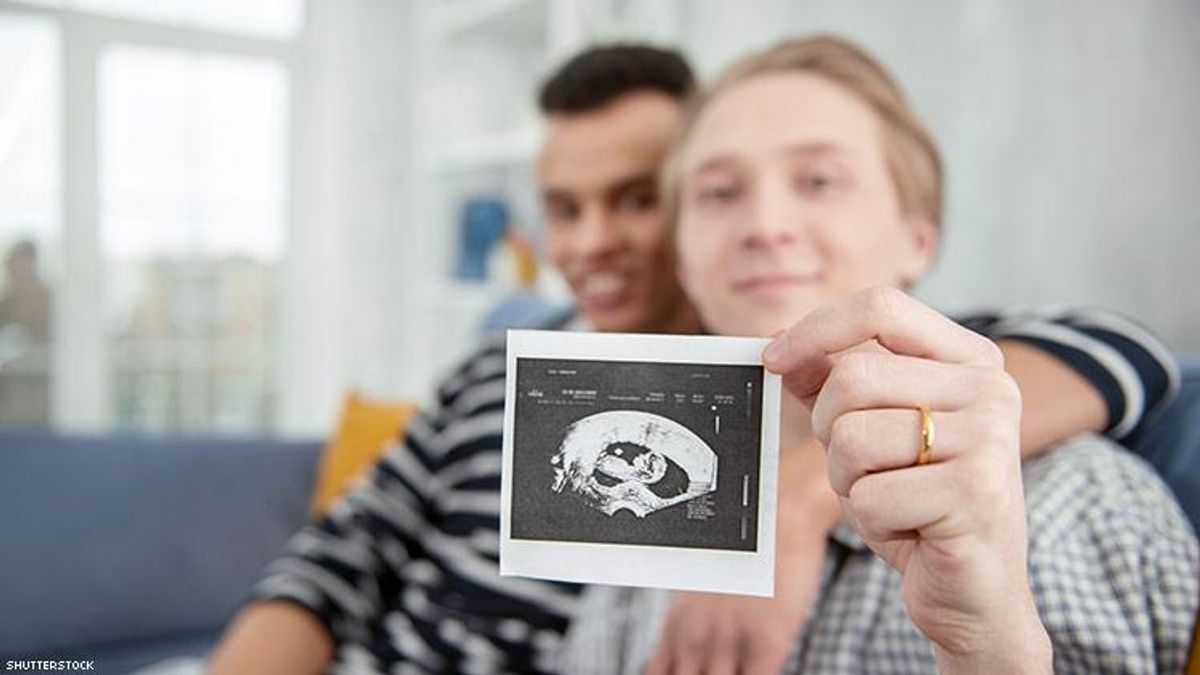From the Stonewall Rebellion to the historic passage of freedom to marry legislation in 2011, up to this month's passage of GENDA and ban on conversion therapy for minors, New York has often been at the forefront of progress for lesbian, gay, bisexual and transgender people.
Unfortunately, New York's welcoming leadership still fails to meet the needs of many same-sex couples and LGBT individuals who are looking to raise a family, as our state has some of the most byzantine, inadequate laws in the country for these parents and parents-to-be. With a far more progressive legislature joining newly re-elected Governor Cuomo in Albany, 2019 is the perfect time to update New York's regressive laws by passing the Child Parent Security Act (S2071/A1071).
The past generation has seen nothing short of a revolution in assisted reproductive technology (ART), enabling couples and individuals who could not before achieve pregnancy to have that opportunity. This has been especially transformative for same-sex couples as they require assistance from an egg or sperm donor - and for gay men, a surrogate as well - in order to give birth to a child.
During this same period, the success of the freedom to marry movement has resulted in deep legal protections for families headed by same-sex couples who have chosen to marry, including protections related to bringing children into their family. Unfortunately, New York's laws regarding ART are lagging far behind others, making it difficult for parents and kids in New York to have the support and opportunities they deserve.
At the heart of the issue is whom the law considers a parent. In states with inclusive laws, individuals or couples seeking to have a child and needing ART are treated as intended parents throughout the process. A couple may work with egg or sperm donors, attorneys, and medical doctors to support the creation of the family, but the law is clear about who the legal parents are.
Too often, in the absence of these kinds of laws, New York courts overemphasize biology over the clear intentions of the parties who brought a child into the world. As a result, sperm and egg donors may be held to have legal rights and responsibilities that they don't want, while intended parents and their children too often live with unacceptable legal uncertainty.
One example of the practical burdens imposed by New York law: despite parentage protections flowing from marriage, married lesbian couples who seek to become parents through the use of a sperm donor are still encouraged to undergo a full second-parent adoption process to ensure the parental rights of the non-biological mother are protected when traveling outside of New York. This requires costly and intrusive criminal and child abuse clearances, medical certifications, and a home study and can take months after the child is born. Other states have much simpler, less expensive, and more humane legal processes that allow intended parents to obtain a court order of parentage establishing that both members of the couple are the legal parents before the child is born.
Additionally, New York is one of only two states where compensated surrogacy of any form is illegal, prohibiting individuals from enlisting the help of a surrogate to have a child of their own. This ban was enacted a generation ago in response to the Baby M case, to allow surrogates to change their mind about giving up a child to whom they're genetically connected. New Yorkers have argued about the wisdom of that law ever since, but times have changed and safeguards for surrogates have evolved. Also, now we're mainly talking about gestational surrogacy, where an embryo is created with the egg and sperm of others, and there is no genetic relationship between the embryo and the surrogate. With well-developed safeguards for surrogates, these voluntary, professional practices should be available to New Yorkers who need assistance having children.
The Child Parent Security Act (S2071/A1071), sponsored by Senator Brad Hoylman and Assemblywoman Amy Paulin, would bring New York's laws up to date. Intended parents who enlist the help of third-parties to achieve pregnancy would have secure legal relationships with their children from the moment of birth. Lesbian moms, whether biologically related to the children or not, and whether married or not, would be recognized as parents from day one without the need for an intrusive second parent adoption. And gestational surrogacy would be allowed, provided that the arrangement follows best practices in the field that protect the interests of the surrogate, intended parents, and child.
This year marks the 50th anniversary of Stonewall, and the eyes of the world will be on New York. It's time for state law to protect many more of our families and to recognize and support these LGBT parents and their children. It's time for New York, once a leader, to catch up.
KAREN LOEWY is Senior Counsel for Lambda Legal. EVAN WOLFSON founded Freedom to Marry and teaches law and social change at Georgetown Law and Yale.

















































































